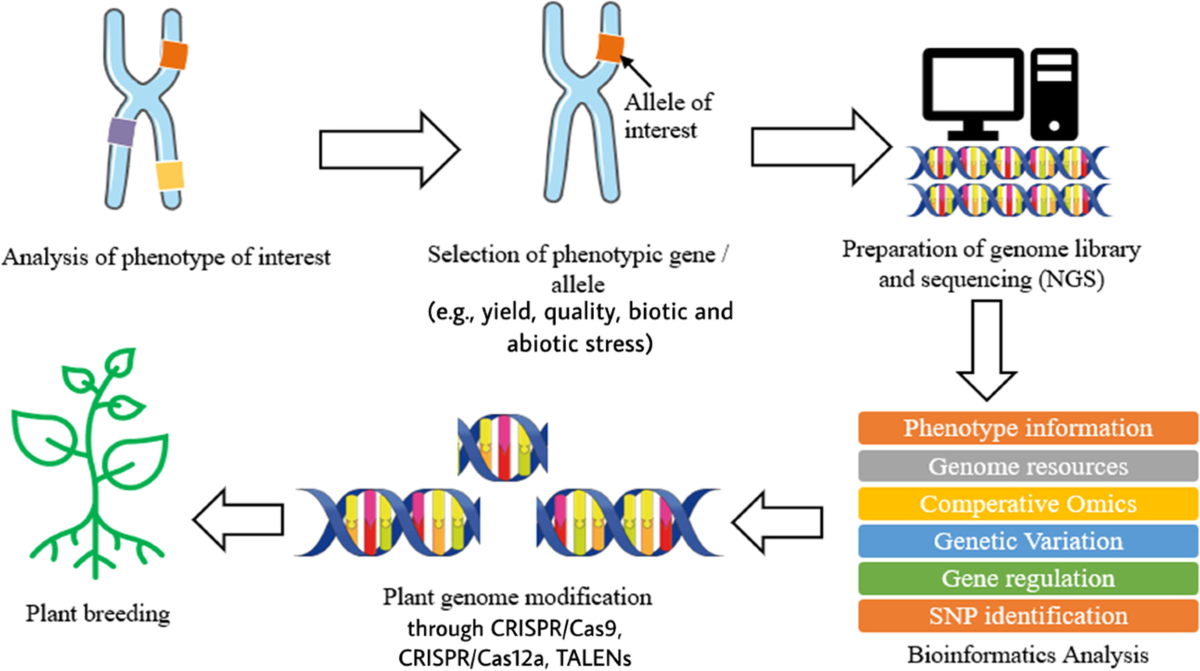The Of Bioinformatics Tutor
The Of Bioinformatics Tutor
Blog Article
The Buzz on Bioinformatics Tutor
Table of ContentsThe Buzz on Bioinformatics TutorBioinformatics Tutor Things To Know Before You BuyGet This Report about Bioinformatics TutorExamine This Report on Bioinformatics TutorThe Best Strategy To Use For Bioinformatics Tutor
Of the total individuals associated with the training, 80% were pupils from public college organizations, while the remaining 20% originated from private establishments. To receive a certification of involvement, pupils were needed to participate in a minimum of 90% of the complete training hours. As a result of this need, an impressive 95% of the individuals efficiently acquired their certificates, having not just satisfied the minimum presence requirements yet also finished all assigned tasks throughout the training.
Throughout the height of the COVID-19 pandemic, especially between June and August 2020, the task team was charged with organizing specialized training in bioinformatics. This training was particularly targeted at students from the research study team Center for Study in Applied Computing at the Federal College of Pará (UFRA) The adjustment to remote knowing systems due to the pandemic produced an opportunity to check out brand-new teaching methods and electronic tools that improved both reach and performance.
To respond to the growing demand in the computing and life scientific researches areas, an innovative training course was presented in 2020 entitled Introduction to Device Learning. This course was designed to give an easily accessible yet comprehensive summary of Expert system strategies, particularly as used in bioinformatics. The program was accomplished over 3 months, from October to December 2020, and was provided completely online through the Google Meet system. This digital style allowed participation from pupils throughout Brazil, a number of whom might not have had the opportunity to participate in in-person sessions.
Everything about Bioinformatics Tutor
Roughly 50% of the complete training hours were committed to practical activities where trainees constructed smart models and applications in a variety of clinical domain names, consisting of genes, molecular biology, and ecological data evaluation. These systems enabled students to engage in real-time data control, design training, and formula trial and error.
Sixty of them were connected with different higher education institutions in the state of Pará, while the continuing to be twenty came from establishments situated in five other Brazilian states. By introducing Artificial Knowledge in a relevant and functional context, the effort served to bridge the gap in between theory and real-world application, offering students with a strong foundation for future research or work in the area.
The training effort formed component of a wider academic outreach initiative referred to as the Bioinformatics when driving project. This task has, throughout the years, introduced loads of pupils to the world of bioinformatics and computational biology. The occasions held under this umbrella effort have actually happened throughout multiple areas and years, as summarized in Table 1 (List of occasions, locations, years, and complete numbers of pupils and trainers)
Numerous of these groups, at first brought with each other by their engagement in training events, have given that gone on to create independent clinical study in cooperation with regional academic institutions. The training not just promoted scientific reasoning within the context of bioinformatics but also stimulated joint relationships that extended beyond the training atmosphere.
The Only Guide for Bioinformatics Tutor
The exact same team, excluding IH and RR, additionally acted as tutors for the functional training modules. Funding for the task was supplied with the give 88887.200562/ 2018-00 from CAPES.
The Federal University of Pará's Workplace of Study (PROPESP/UFPA) additionally offered financial assistance, particularly for the production of the final manuscript. The writers state no financial or business disputes of interest that can have influenced the study. Moreover, all interpretations and point of views revealed in this write-up are exclusively those of the authors and do not always reflect those of their particular institutions, the author, editors, or reviewers included in the publication procedure.

Unknown Facts About Bioinformatics Tutor
From an instructional perspective, the mentor approach used in the training was purposefully interactive. Classes were carried out in a manner that encouraged trainee involvement and discussion, going beyond rote memorization to discover how ideas are established, applied in life, and tested in academic setups. The instructional philosophy concentrated on supporting both strong and battling trainees, giving customized assistance, and structure self-confidence through continual mentorship and patience.

Each group, consisting of about 36 individuals, was supported by three advisors-- many of whom were postdoctoral researchers with specialized experience. These advisors not just aided develop the group tasks however likewise facilitated their implementation, making sure that each research question was both pertinent and properly difficult. The goal was to supply a biologically practical context that participants might discover through open-ended purposes and access to curated datasets.
For extra insights right into the method and results of this project-based understanding method, readers are routed to S1 Text, that includes in-depth descriptions of the pedagogical structure, evaluation methods, and project styles made use of in the training sessions.
An Unbiased View of Bioinformatics Tutor
Of the overall individuals entailed in the training, 80% were students from public higher education organizations, while the staying 20% came here from exclusive establishments. To qualify for a certificate of participation, trainees were needed to go to at the very least 90% of the total training hours. Notably, beyond the students who enrolled in the training sessions, 7 knowledgeable teachers participated in delivering the courses, while three devoted research study professors collaborated the general training process. Around 50% of the overall training hours were devoted to functional activities where trainees developed intelligent models and applications in an array of clinical redirected here domain names, consisting of genetics, molecular biology, and environmental data evaluation. The training not just fostered scientific thinking within the context of bioinformatics yet additionally triggered collective connections that extended beyond the training setting.
Report this page